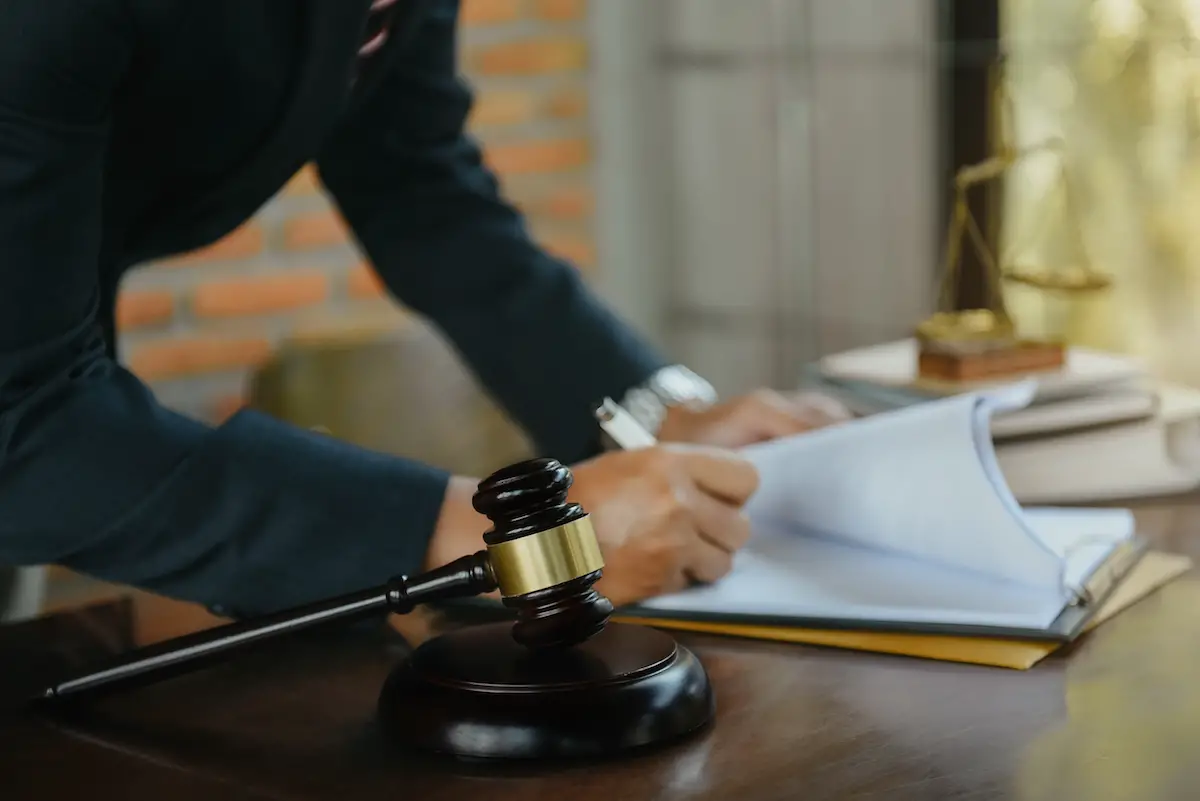Understanding Hearsay In Court
When you go to court, there are a lot of legal terms that you may not be familiar with. One term that you may have heard is “hearsay.”
What does it mean when a lawyer says hearsay? Simply put, hearsay is a statement that is made outside of the courtroom that is being used to prove or disprove a fact in the courtroom.
For example, if you are on trial for robbery, and the prosecutor wants to use a statement that you made to your friend about the robbery, that would be considered hearsay.
In this blog post, we will discuss what hearsay is, some examples of hearsay in court, and whether or not it can be held against you. We will also explore the different types of hearsay and how they are used in evidence.
If you are facing criminal charges, it is important to understand the concept of hearsay and how it could impact your case.
Legal Definition of Hearsay
Under the Federal Rules of Evidence, hearsay is defined as “a statement that:
(A) the declarant does not make while testifying at the current trial or hearing; and
(B) a party offers in evidence to prove the truth of the matter asserted in the statement.”
For a statement to be considered hearsay, it must be offered as evidence to prove that what was said in the statement is true.
If you are on trial for robbery, and the prosecutor wants to use a statement that you made to your friend about the robbery, that would be considered hearsay.

Why Would a Lawyer Use Hearsay?
There are many reasons why a lawyer may want to use hearsay in court.
Prove That An Event Happened
First, it can be used to prove that a certain event happened.
For example, if there is a dispute about whether or not an altercation took place, and there is no video footage or eyewitnesses, hearsay could be used to prove that the altercation did take place.
Prove What Someone Said
Second, hearsay can be used to prove what someone said. This is often helpful when there is no video or audio recording of the statement that was made.
For example, if you are on trial for robbery, and the prosecutor wants to use a statement that you made to your friend about the robbery, that would be considered hearsay.
Is Hearsay Allowed in Court?
Hearsay is generally not allowed in court. The reason for this is that it can be difficult to determine the truthfulness of a statement that was made outside of the courtroom. However, there are exceptions to this rule.
There are several different types of hearsay, and each type has its own set of rules. We will discuss some of these types below.
Examples of Hearsay in Court
As we mentioned before, hearsay is generally not allowed in court. However, there are exceptions to this rule.
The Declarant is Unavailable to Testify
One exception is if the declarant is unavailable to testify. For example, if the person who made the statement is dead, using a quote of theirs may be admissible as evidence.
The Statement is Made Under Certain Circumstances
Another exception is if the statement is made under certain circumstances. For example, if the statement was made in a police interrogation or during a medical examination, then it may be admissible as evidence.

Is Hearsay Considered Evidence?
Hearsay is considered to be evidence. However, it is not as reliable as other types of evidence, such as eyewitness testimony or video footage.
How to Argue Against Hearsay
If you are facing criminal charges and the prosecution wants to use hearsay against you, there are several ways that you can argue against it.
One way is to show that the declarant is available to testify. For example, if the person who made the statement is alive and willing to testify, then their statement may not be admissible as evidence.
Another way to argue against hearsay is to show that the statement is not reliable. For example, if the statement was made under duress or if it is contradicted by other evidence, then it may not be admissible as evidence.
What If Hearsay Is Proven False?
If hearsay is proven to be false, it may still be admissible as evidence. For example, if the statement was made by a witness who later recants their testimony, the statement may still be admissible as evidence.
Can Hearsay Be Held Against You In Court?
Hearsay can be used as evidence against you in court. However, it is not as reliable as other types of evidence. If you are facing criminal charges and the prosecution wants to use hearsay against you, there are several ways that you can argue against it.
One way is to show that the declarant is available to testify. Another way to argue against hearsay is to show that the statement is not reliable.
Types of Hearsay
There are many different types of hearsay, and each type has its own set of rules. We will discuss some of these types below.
Statements Made By a Witness Who Is Unavailable to Testify
One type of hearsay is a statement made by a witness who is unavailable to testify.
For example, if the person who made the statement is dead, then their statement may be admissible as evidence.
Statements Made In Certain Circumstances
Another type of hearsay is a statement made in certain circumstances. For example, if the statement was made in a police interrogation or during a medical examination, then it may be admissible as evidence.
Statements Made By Children
Another type of hearsay is a statement made by a child. For example, if a child makes a statement to their parent about abuse that they have experienced, then the parent may be able to use that statement as evidence in court.
Should Your Lawyer Use Hearsay In Court?
If you are facing criminal charges, your lawyer may want to use hearsay in court. However, you should be aware that hearsay is not as reliable as other types of evidence.
You should also be aware that there are ways that the prosecution can argue against hearsay. If you have any questions about whether or not your lawyer should use hearsay in your case, you should ask them for their opinion.

In Conclusion
Hearsay is a type of evidence that is not as reliable as other types of evidence. However, there are exceptions to this rule. Hearsay can be used in court if the declarant is unavailable to testify or if the statement was made under certain circumstances.
If you are facing criminal charges and the prosecution wants to use hearsay against you, there are several ways that you can argue against it. You should discuss these options with your lawyer to decide whether or not using hearsay is right for your case.
Related Questions
What are the rules of hearsay?
The rules of hearsay vary from jurisdiction to jurisdiction. However, some general rules apply to all jurisdictions. For example, one rule of hearsay is that the declarant must be unavailable to testify for their statement to be admissible as evidence.
What are the exceptions to the hearsay rule?
There are many exceptions to the hearsay rule. For example, one exception is for statements made by a witness who is unavailable to testify. Another exception is for statements made in certain circumstances, such as police interrogations or medical examinations.
What is an out-of-court statement?
An out-of-court statement is a statement that was not made in court. For example, if someone makes a statement to their friend about a crime they witnessed, that would be an out-of-court statement.
Out-of-court statements can be admissible as evidence if they meet certain requirements. These include being made by a witness who is unavailable to testify.








